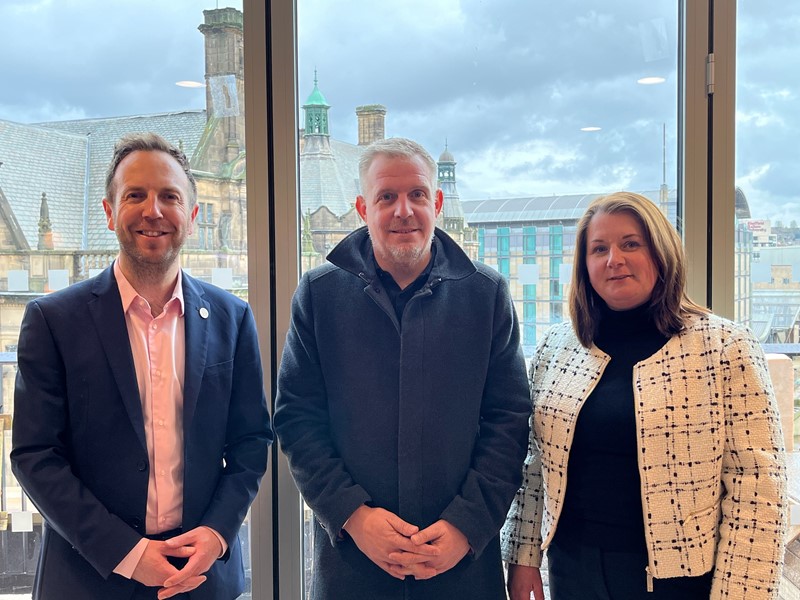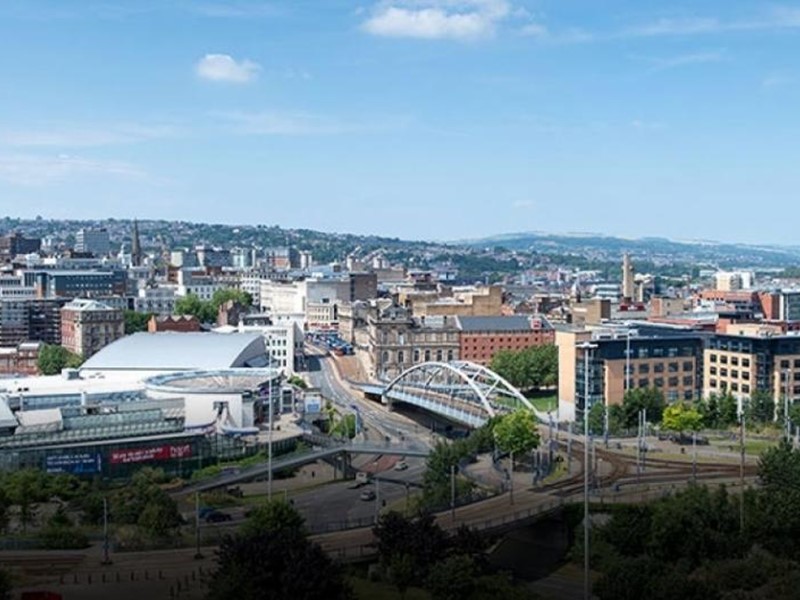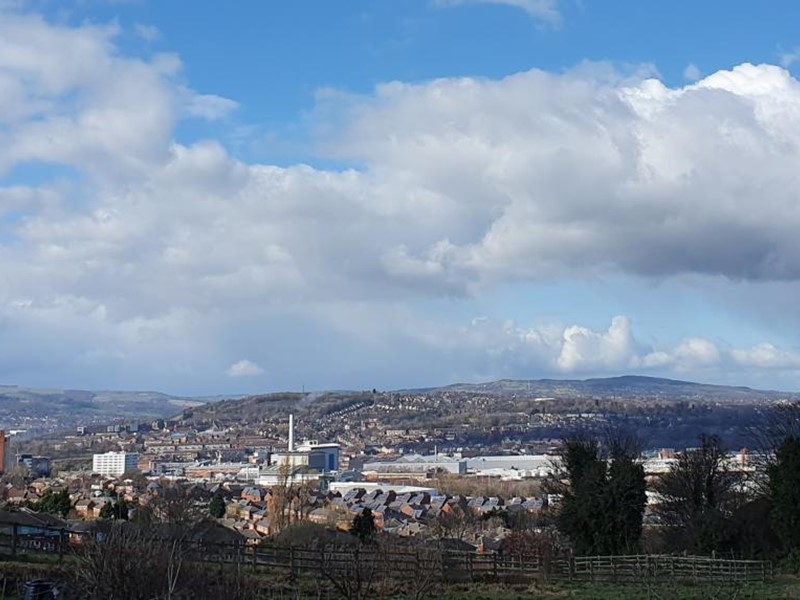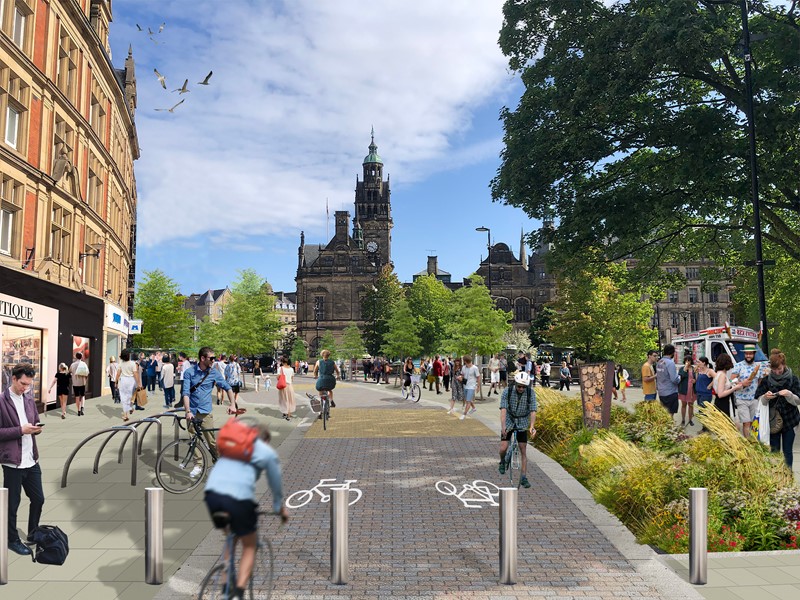Sheffield City Centre’s flagship Radisson Blu hotel, which boasts 154 rooms and a rooftop bar and restaurant, is due to open this Summer with booking available next week.
Agreement will improve digital connectivity in city

Sheffield City Council has signed an agreement to work with Openreach which will enable it to deploy a faster, more reliable, full-fibre digital network to homes and businesses as fast as possible.
The agreement comes after the council’s Digital Connectivity Strategy was endorsed by councillors today (Wednesday).
Councillors have pledged to improve digital connectivity in the city, increasing coverage, choice and speed of communication to enable residents and businesses to use digital solutions to improve their lives and to sustain, grow and create new business.
The ‘Digital Connectivity Charter’ also includes measures that provide the Council with assurance that Openreach will minimise the amount of construction work required, and that any that is required will meet the Council’s quality and safety standards and will minimise disruption.
One of the Council’s objectives is to become an industry-recognised, pro-investment, ‘Barrier Busting’ city and today’s announcement goes a long way towards achieving this. Matt Hemmings from Openreach and Councillor Bryan Lodge, watched by the council's David Oliver (left) and Mark Gannon.
Matt Hemmings from Openreach and Councillor Bryan Lodge, watched by the council's David Oliver (left) and Mark Gannon.
Councillor Bryan Lodge, Cabinet Adviser for Finance, Resources and Governance said: “We want Sheffield to be recognised by the digital industry as an attractive place to invest, where the local authority proactively supports operators and removes barriers to the deployment of infrastructure.
“We accept that as a core city, there is much to do. Signing an agreement of this kind with Openreach shows that we are receptive to improving our digital reach and are ambitious to work with other companies that enable us to be at the forefront of 21st century communications. Sheffielders deserve it.”
Matthew Hemmings, Openreach’s Fibre and Network Delivery Director in the North, said: “I’m impressed by Sheffield’s vision for digital connectivity, and by the way our two organisations are collaborating to work towards achieving a common goal. We both want to bring some of the fastest broadband speeds in the UK to the front doors of tens of thousands of homes and businesses across the city as quickly as possible.
“By removing barriers, such as being more flexible with how we work together on wayleaves and permit applications, Sheffield has set the benchmark. Our engineers will be able to work more efficiently and effectively, reusing existing duct and poles where possible, to minimise disruption to people living and working nearby.”
Notes for editors:
Sheffield is well served by digital connectivity technology. For example, coverage of Superfast Broadband (fixed line broadband that is capable of download speeds of 30Mbps) is at 96.5 per cent of the City and coverage of 4G (cellular broadband with average download speeds from 16 to 33Mbps) ranges from 72.1 to 96.2 per cent of the city depending on network operator.
However, both Superfast Broadband and 4G technologies are incapable of meeting future demands for speed, capacity, reliability, and responsiveness; and are fast approaching end of life.
The next generation of digital connectivity consists of full fibre networks and 5G, which support download speeds of 1Gbps plus. It is anticipated that the Digital Connectivity Charter will help improve coverage of full fibre networks and 5G in Sheffield.



